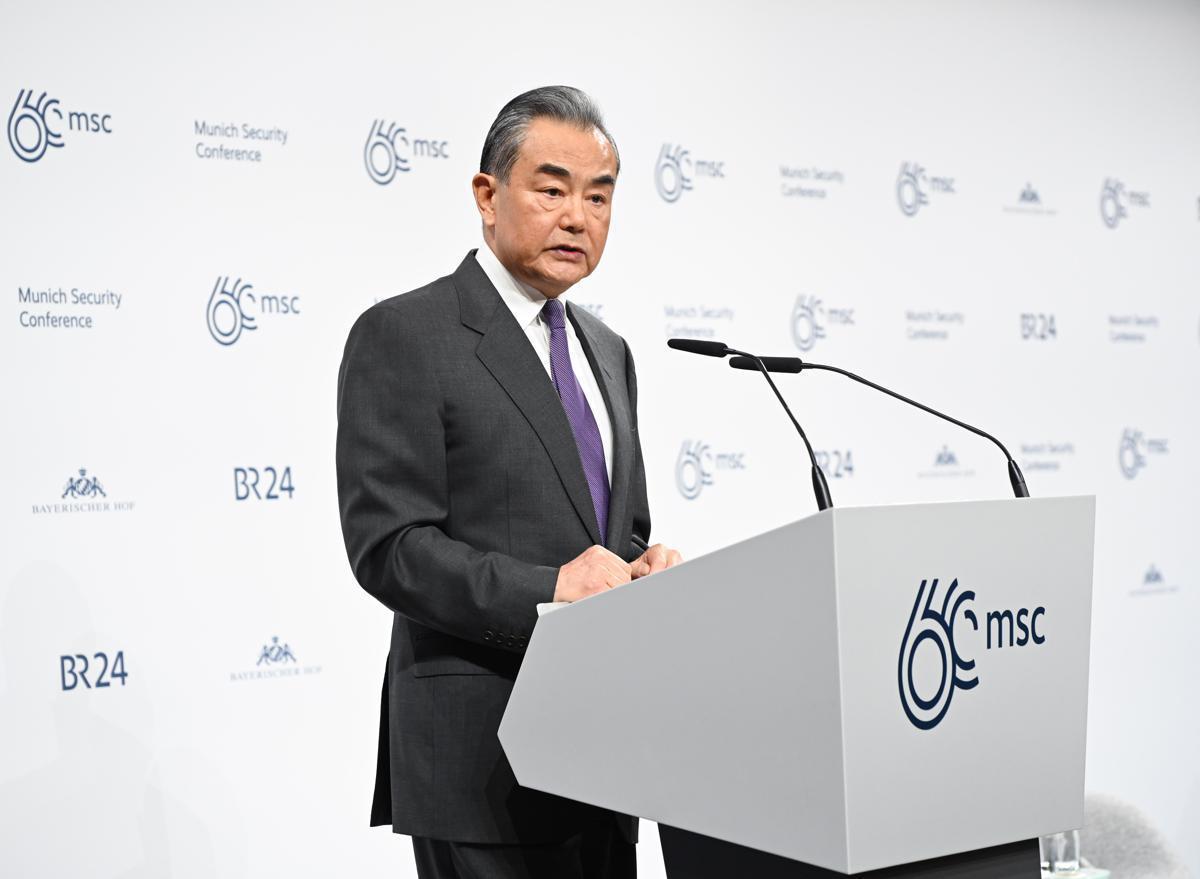
Foreign Minister Wang Yi gives the keynote speech on Saturday during the "China in the World" session at the Munich Security Conference in Germany. [Photo by Ren Pengfei/Xinhua]
This is an editorial from China Daily.
Sino-German relations are built on mutual trust and respect, pragmatic cooperation, and win-win results. The ties have always been considered a good example of international relations that transcend different social and political systems, bringing tangible benefits to the peoples. Over the past more than half a century, the relationship has forged ahead despite the fast-changing international landscape, with the two countries now enjoying a strategic partnership on all fronts.
The separate meetings that Foreign Minister Wang Yi held with German Chancellor Olaf Scholz and Foreign Minister Annalena Baerbock on Saturday, on the sidelines of the Munich Security Conference, were part of the close communications of the two sides. Thanks to their joint efforts, they can continuously expand consensus and strengthen cooperation. The frequent high-level exchanges between the two countries have laid a solid foundation for the healthy and sound development of bilateral relations. That the two countries are collaborating also on issues beyond their bilateral relations, such as global economic governance and international industry and supply chains, serves to provide some stability and certainty in a turbulent world.
Thanks to the vision of their respective policymakers, cooperation between the two countries has achieved new results in various fields. German direct investment in China increased by 4.3 percent to a record high of 11.9 billion euros ($12.7 billion) last year, with major German companies such as Daimler, Volkswagen, and BASF continuing to expand their business in China. And in 2023, trade between China and Germany reached 253 billion euros, with China becoming Germany's most important trading partner for the eighth year in a row.
China's march toward modernization will continue to bring long-term opportunities for German enterprises. That the two countries are now seeking to become partners in green development, to propel their green transitions and to deepen cooperation on green energy technology means new dynamism is being added to Sino-German economic and trade cooperation.
History shows that Sino-German relations have been able to flourish mainly as a result of the joint efforts to free their constructive engagement from geopolitics so that they can seek common ground while shelving differences. It is revealing that during his meeting with Wang, Scholz reiterated that Germany welcomes China's development and opposes decoupling and the severing of supply chains.
Maintaining the strategic autonomy that Germany applies in the handling of its relations with China — against the background of Washington pushing for a "de-risking" strategy aimed at excluding China from the global industry and supply chains — will be crucial for the future development of Sino-German relations, and for reinforcing their cooperative relations as a settling counterbalance to the United States' excessively self-serving and aggressive economic and trade measures.

 中文
中文



